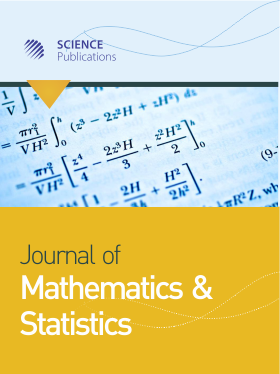Estimation Methods for Multicollinearity Proplem Combined with High Leverage Data Points
Abstract
Problem statement: Least Squares (LS) method has been the most popular method for estimating the parameters of a model due to its optimal properties and ease of computation. LS estimated regression may be seriously affected by multicollinearity which is a near linear dependency between two or more explanatory variables in the regression models. Although LS estimates are unbiased in the presence of multicollinearity, they will be imprecise with inflated standard errors of the estimated regression coefficients. Approach: In this study, we will study some alternative regression methods for estimating the regression parameters in the presence of multiple high leverage points which cause multicollinearity problem. These methods are mainly depend on a one step reweighted least square, where the initial weight functions were determined by the Diagnostic-Robust Generalized Potentials (DRGP). The proposed alternative methods in this study are called GM-DRGP-L1, GMDRGP- LTS, M-DRGP, MM-DRGP and DRGP-MM. Results: The empirical results of this study indicated that, the DRGP-MM and the GM-DRGP-LTS offers a substantial improvement over other methods for correcting the problems of high leverage points enhancing multicollinearity. Conclusion: The study had established that the DRGP-MM and the GM-DRGP-LTS methods were recommended to solve the multicollinearity problem with high leverage data points.
DOI: https://doi.org/10.3844/jmssp.2011.129.136

- 6,111 Views
- 6,197 Downloads
- 8 Citations
Download
Keywords
- Multicollinearity problem
- multiple high
- leverage points
- alternative robust estimations robust generalized
- explanatory variables
- diagnostic tool
- regression analysis
- high leverage
- substantial improvement
- leverage points
- bounded influence
